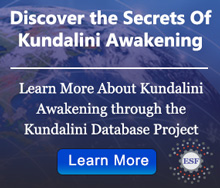You are here
Home › Research › Thomas G. Howe Publishing Honorarium › Evaluating Thomas G. Howe Publishing Honorarium SubmissionsEvaluating Thomas G. Howe Publishing Honorarium Submissions
For those who are interested in submitting an article for the Thomas G. Howe Publishing Honorarium Award, we have listed a number of points that the referee's will consider when reviewing submissions. This list is intended to give authors a general idea of the writing level that is required to receive the award.
Submissions, a minimum of 4,000 words in length - excluding references and bibliography, should be made in the form of a Word document with left aligned paragraphs and properly tagged references and (if needed) end-notes. Either MLA or APA format is acceptable.
- Does this work specifically further or promote the research of ICR? If so, how?
- Is there a clearly stated, cohesive thesis? (Can you ask yourself what the main point is and answer the question!)
- Is the thesis supported? Does the rest of the argument build to the conclusion without unnecessary diversion?
- Similarly, is the paper as a whole cohesive? Does it flow logically from one point to the next? Does it flow from one point to the next without being interrupted by extraneous, unsupported pieces of information or comment?
- Does it have references? Is it properly footnoted? Are the referenced materials reliable sources done by recognized authorities? Are the references as up-to-date as possible? (In other words, even if the author is quoting ancient texts, etc. does it look he/she has also checked contemporary sources/commentaries on the topic?)
- Is there attention to detail? Are spelling and grammar correct? Is the meaning/wording of each sentence clear?
- Are the paragraphs begun with clear topic sentences or points? Do the facts/examples/anecdotes in the paragraph then indeed support the main point of the paragraph?
- Is the paper objective rather than subjective? (While it can be, in some instances, okay to have an occasional subjective comment in a research paper, this comment must still be supported by facts/references.)
- Does the paper contribute something new? Is it original research? Or does it contribute in an original way to the dialogue on kundalini, consciousness, subtle energies, or mystical experience?
- In conclusion, in general was the paper clearly written? In other words, could you understand what the author was trying to get across – even if the topic required thought – without having to do a lot of mental gymnastics?




